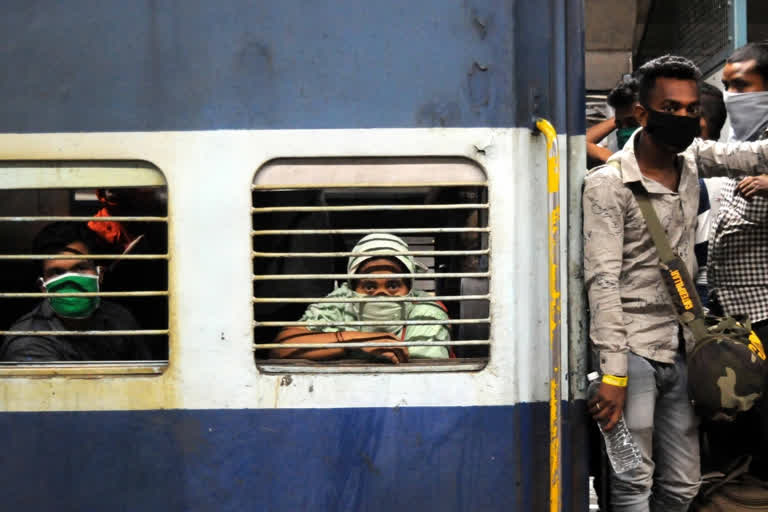Hyderabad: The COVID-19 pandemic has already thrown the life of migrant workers out of gear. Now, it is bringing in an unprecedented crisis in employment which is far worse than in 2008.
According to a report from the Organisation for Economic Co-operation and Development (OECD), women, young people and workers on low incomes are the hardest hit.
The OECD unemployment rate edged down to 8.4% in May 2020, after an unprecedented increase of 3.0 percentage points in April, to 8.5%, the highest unemployment rate in a decade.
In February 2020, it was at 5.2%. The number of unemployed people in the OECD area stood at 54.5 million in May. The lack of variation between April and May is the result of contrasting trends.
On the one hand, in the United States, as Donald Trump reopens the economy, many furloughed workers went back to work, even as other temporary layoffs became permanent. And in several other countries including India, layoffs have become the new normal.
The OECD Employment Outlook 2020 says that, even in the more optimistic scenario, the OECD-wide unemployment rate may reach 9.4% in the fourth quarter of 2020, exceeding all the peaks since the Great Depression.
The share of people in work is expected still to be below pre-crisis levels even at the end of 2021.
Read: Migrant crisis set to explode, warns ILO
Total hours worked have plummeted, falling ten times faster in the first three months of the current crisis than they did in the first three months of the 2008 global financial crisis, in OECD countries for which data are available.
Speaking ahead of a special OECD Roundtable Ministerial Meeting on Inclusion and employment policies for the Recovery, José Luis Escrivá – OECD Secretary-General Angel Gurría said: “Building on the swift and decisive initial response to the COVID-19 crisis, countries now need to do everything they can to avoid this jobs crisis turning into a full-blown social crisis. Macroeconomic policies must remain supportive through the crisis to minimise the risk of a prolonged slump and a lost generation of young people whose labour market prospects are durably harmed.”
Women have been hit harder than men, with many working in the most affected sectors and disproportionately holding precarious jobs. The self-employed and people on temporary or part-time contracts have been particularly exposed to job and income losses.
As prospects of quickly finding new work will remain poor for many, some countries should extend unemployment benefit durations to prevent job seekers from sliding too quickly into much less generous minimum income benefits



